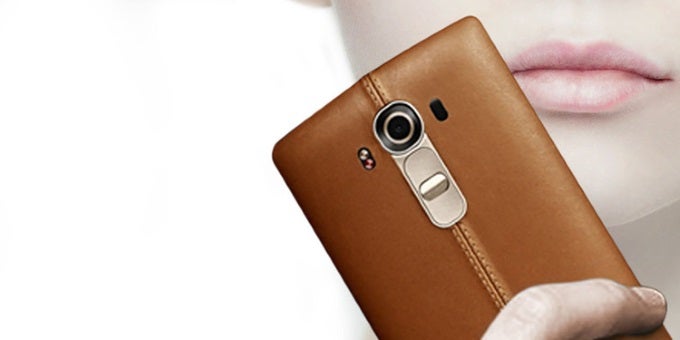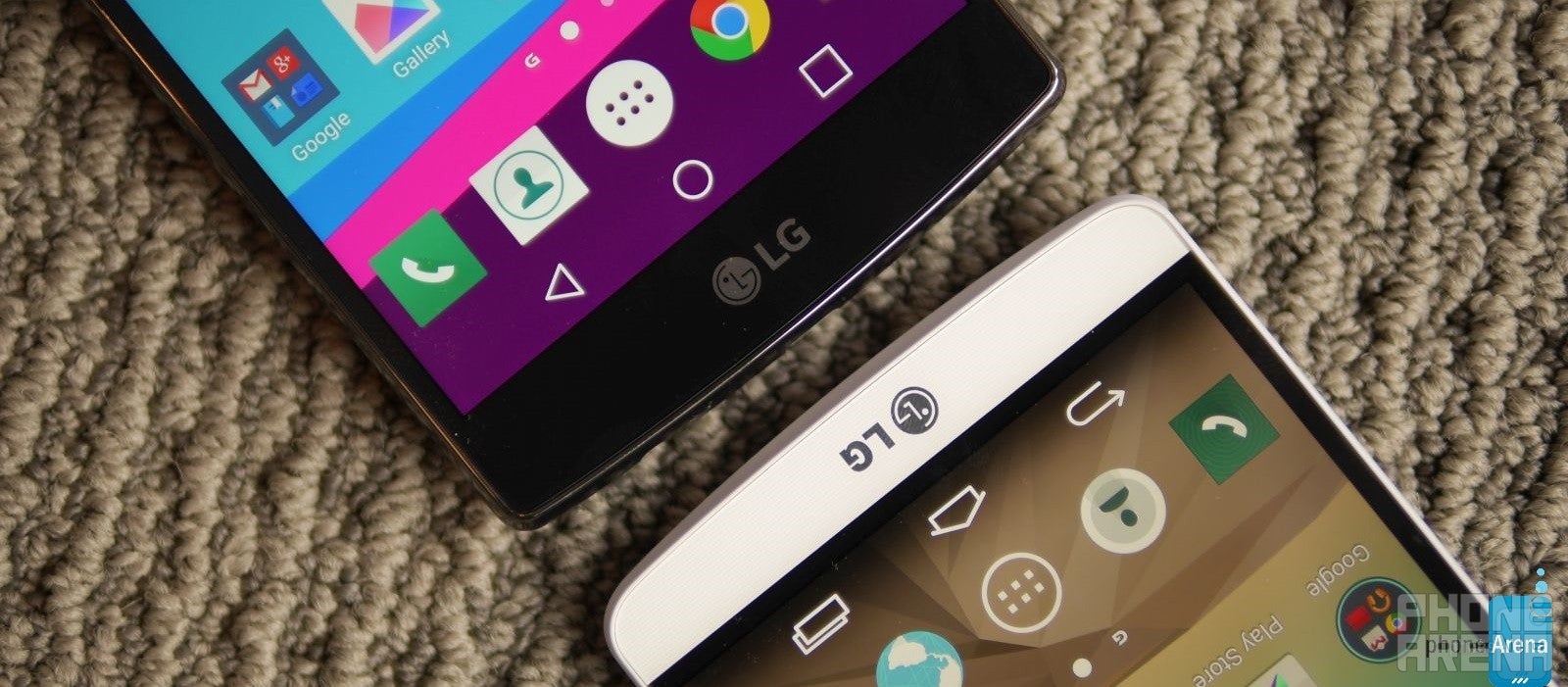LG G4 with retro-chic leather charm and top-shelf internals announced

Design
The LG G4 certainly isn't the "radically different" smartphone LG executives promised, but it isn't last year's phone either. The new kid in town is slightly bigger and edgier than the considerably rounder LG G3. Its body also exhibits a slight curvature along its height, which leads to an improved grip and somewhat better ergonomics. The back panel has seen a substantial makeover, as LG exchanged the smooth matte plastic of its predecessor for either a diamond-shaped pattern, or a genuine leather finish, complete with actual stitching. LG opposed the modern smartphone glass & metal design by opting for an "analogue feel", which gives the smartphone a deliberate retro-chic character - genuine leather and all. LG's design decisions certainly won't fit every taste, and the LG G4 is the only spring 2015 flagship phone that's still made of plastic, but the result is still aesthetically pleasing. Many users will also appreciate the microSD slot and removable back panel, which still turn slim metal phones into non-sellers for some. Otherwise, the LG G4 is an incremental upgrade over the LG G3.
Display
LG retained the 5.5-inch Quad HD (1440 x 2560-pixel) 538ppi LCD display configuration in the LG G4, but boasted of considerable improvements in color gamut, brightness, contrast ratio, touch function, power consumption, and thinness. On paper, this translates to 120% color gamut, a 50% higher contrast ratio (supposedly, from earlier model), and a 30% increase in brightness. We don't have the tiny details, but it's worth remembering that adhering to color standards is what makes a display look actually great. Having a color that's 120% from the sRGB gamut rather than the standard 100% could make for purposefully overblown colors. Still, from what we've seen of it in person, the LG G4's display certainly catches the eye with its enhanced brightness and sharpness. No wonder LG claims a 25 percent improvement in brightness and 50% improvement in contrast over the LG G3!

Interface
The LG G4 proudly touts LG UX 4.0, a colorful experience styled after the LG G3's simple, straightforward UI. The overall look and feel hasn't changed dramatically, this is still an interface that looks a tad cartoony - especially compared with the modern, streamlined TouchWiz and Sense 7 - but it never, ever gets in the way. LG kept what was great about the UI, and expanded its concepts with new shortcuts and features . Quick Shot lets you take pictures quickly by double-tapping the rear key, even if the display is off. Smart Bulletin can now aggregate information from multiple apps. Think of it as a blend between Google Now and the Android 5.0 recent apps menu.
the camera app has received a major overhaul. In the LG G3, it was far too limited, taking all control away from the user in favor of the - admittedly well calibrated - automatic mode. In the LG G4, the camera is back with a vengeance. LG is looking to capitalize on that 16MP 1.8 lens unit with simple, basic, and manual control modes that offer complete creative control and storing of images in RAW format, among other advanced photography features.
Performance
The LG G4 is only the third flagship smartphone to pass on Qualcomm's en-vogue Snapdragon 810 processor. Instead, LG chose the Snapdragon 808 as their silicon recruit, despite making the notoriously hot-headed 810 behave in the LG G Flex 2. Anyway, the Snapdragon 808 is a reasonable alternative. That's a 64-bit, hexa-core (4+2) processor right there, ticking with four ARM Cortex-A53 and two ARM Cortex-A57 cores in tandem with the Adreno 418 GPU. The rest of the specs include 3GB of RAM. Although the Snapdragon 808 is positioned lower in the performance pyramid, it seems smartphone makers are struggling to get peak performance out of the Snapdragon 810 for the time being, which could even the playing field between the two in the LG G4's favor for now.
The house is ran by a 3000mAh battery, same as in the LG G3. LG promises that the LG G4 has no trouble going through a full day of normal use, but there's no universal definition of "normal use" in circulation, so we reserve the right to put the smartphone through our battery life test.
Camera
The LG G4 comes with a 16 MP rear camera of LG's own creation. It comes with a wide aperture of f/1.8, edging out the Samsung Galaxy S6's f/1.9 cam. LG claimed the new camera module can receive 80% more light than what the LG G3 managed, which means the G4 should be able to take high quality photos in low light scenarios, as well as when capturing moving subjects. And in response to selfies taking over the human society, LG added a generous 8 MP front-facing camera on the G4. Such front cams are rarely seen outside of China and its smartphone makers' "more for less" strategy of competing.
Price and release date
We're a little thin on details here, as LG itself hasn't formally announced price and release date information. Generally, the LG G4 will be available by the end of May/early June in South Korea, and its global launch campaign is set to include as many as 170 countries. State-side, the usual suspects by the name of Verizon, AT&T, T-Mobile & Sprint (along with U.S. Cellular and Best Buy) will be offering the LG G4 on the ubiquitous "$200 on two year contract" price plan, with the luxury leather back version probably selling for an additional $100. Meanwhile, the unlocked price will be north of $600, which is the expected minimum unlocked price for today's flagship smartphones. Judging by leaked German prices, we're looking at about $680 for the base 32GB model, and something to the tune of $730 for the genuine leather edition. The German prices are the same, but in Euro currency. Treat them as general approximates of the LG G4's unlocked European price.
LG clearly priced the LG G4 editions as devices in the same league as its arch rival Samsung's flagship Galaxy S6 and S6 edge, while simultaneously undercutting them a little bit. For example, the base LG G4 is 10 to 20 euro cheaper than the GS6 unlocked, and the genuine leather edition is a tad cheaper than the Galaxy S6 edge.














Things that are NOT allowed: